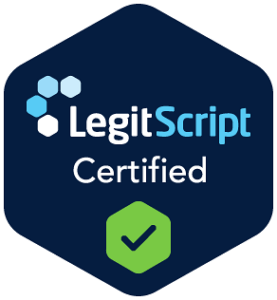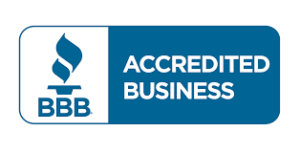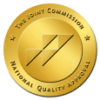Breaking free from meth takes medical care, structure, and ongoing support—not just willpower. At Live Again Detox in Tennessee, our Tennessee Meth Rehab program gives you a safe, clinically guided path after detox so you can stabilize, rebuild routines, and protect your progress with evidence-based care and real-world relapse-prevention skills. We meet you where you are, then move at a pace your body and brain can handle.
Why Choose Live Again Detox for Meth Rehab in Tennessee
- Medical leadership with integrated psychiatric care
- Dual-diagnosis expertise (anxiety, depression, PTSD, bipolar)
- Small groups and personalized attention for faster traction
- Step-down continuum you can trust: Detox → Residential → PHP → IOP → OP → Aftercare
- Local community connections for meetings, sponsors, and sober activities across Middle TN
Whether you’re coming straight from detox or returning after a recent setback, Live Again Detox provides the structure and accountability that crystal meth rehab TN clients need to turn “early recovery” into lasting stability. You’ll leave each week with practical tools, a clearer mind, and a plan that fits your real life.

What Is Meth Rehab in Tennessee?
Meth rehab is a structured meth addiction treatment in Tennessee designed to help you stop using methamphetamine, heal your brain and body, and build habits that last.
Think of it as the bridge from crisis to stability: you move from surviving day to day into a steady routine where sleep, nutrition, therapy, and skills training work together to lower cravings and keep you on track.
Rehab vs. Detox—What’s the Difference?
Detox is acute stabilization—managing the crash, protecting sleep, rehydrating, and keeping you safe during the first days without meth.
Rehab is therapy, skills, and lifestyle change—the work that follows detox: craving control, thinking clearly again, repairing routines, and learning how to handle triggers without blowing up your progress.
Core Objectives of Effective Meth Rehab:
- Craving control: trigger mapping, urge-surfing tools, and short drills you can use anywhere (car, work break, bedtime).
- Sleep reset: a consistent wake time, morning light exposure, device cutoffs, and wind-down routines to restore circadian rhythm.
- Nutrition & hydration: simple, repeatable meals that stabilize energy and mood; hydration cadence to curb jitters and crashes.
- Stress regulation: CBT/DBT skills for anxiety, conflict, and boredom—the moments meth used to “solve.”
- Relapse prevention routines: if-then plans for paydays, late nights, and travel; accountability through peers, family (with consent), and alumni.
Where Live Again Detox fits in.
At Live Again Detox, rehabilitation is clinician- and medically led from the start. We tailor care to your risks and responsibilities, moving you through a seamless continuum: Medical Detox for safety, Residential/Inpatient for maximum structure, PHP when you’re ready for longer therapeutic days, IOP as you re-enter work or school, OP for maintenance, and Aftercare for accountability that sticks.
Because we’re a comprehensive methamphetamine treatment center, your team coordinates therapy, medication management, family education, and community resources so each level hands off cleanly to the next.
Bottom line: meth rehab in Tennessee should feel practical, predictable, and doable. With the right plan—and the right people—you can rebuild a life that works even on the hard days.
Risk Factors for Meth Addiction
Methamphetamine hijacks motivation and energy by flooding the brain with dopamine—the neurotransmitter tied to reward, drive, and focus. With repeated use, the brain compensates by producing less dopamine and down-regulating receptors. The result is dopamine depletion and anhedonia—that “nothing feels good” flatness.
Add cognitive slowdown (trouble focusing, forgetfulness), sleep debt (nights cut short or flipped), and anxiety/irritability, and you’ve got a nervous system running hot with no fuel in the tank.
Effective care at Live Again Detox addresses this biology head-on, featuring steady routines, targeted therapies, and realistic timelines that enable the brain to heal.
Recovery also has a post-acute phase, during which symptoms fluctuate. Even after detox, people can feel motivation dips, flat mood, and heightened stress reactivity. This doesn’t mean treatment “isn’t working.” It means the reward system is recalibrating. During this window, structure matters more than motivation.
Scheduled sleep, meals, movement, and therapy sessions create external momentum when internal drive is thin. That’s why our crystal meth rehab TN model anchors your day: same wake time, morning light, predictable meals, brief exercise, skills practice, and wind-down—every single day.
Just as important is safety and stabilization before intensity. When sleep and nutrition are unstable, heavy trauma work or long therapy days can spike irritability or cravings. At Live Again Detox, we gradually increase the therapy load as the basics normalize.
Early sessions emphasize stabilization—CBT for thought traps, DBT for distress tolerance, and straightforward relapse prevention drills—while we rebuild the circadian rhythm and reintroduce balanced nutrition. As energy and attention return, we layer in deeper work (e.g., EMDR when clinically appropriate), vocational planning, and family communication.
You’ll also learn to read your body’s dashboard: caffeine timing that doesn’t wreck sleep, hydration cadence to reduce jitters, meals that smooth blood sugar, and micro-breaks that keep stress from boiling over.
Meth recovery isn’t a single lever; it’s a set of small, repeatable levers that, together, lower craving pressure. This is meth addiction treatment in Tennessee that’s practical, humane, and science-aligned—delivered by a team that understands why you can want recovery and still feel flat.
When to Seek Meth Rehab in Tennessee?
If you’re asking the question, you likely already see the pattern. Meth rehab in Tennessee is appropriate right after detox and any time continued use or cravings are disrupting sleep, work, or relationships.
Rehab is also a strong fit if you live with dual diagnosis—anxiety, depression, PTSD, bipolar disorder—and need integrated care that treats mental health and meth use together.
Early-recovery clients who desire accountability and structure tend to do especially well with scheduled days, peer support, and skills practice. If you’ve had a recent return to use, entering care quickly shortens the spiral and protects your progress.
Red flags that signal it’s time to start now:
- Binge-crash cycles that are getting faster or harder to stop
- Paranoia or escalating conflict with family, friends, or coworkers
- Rapid weight loss, poor appetite, or dehydration
- Insomnia or flipped sleep (awake at night, crashed by day)
- Co-use of benzos, alcohol, or opioids, which increases overdose and medical risk
At Live Again Detox, we start with a brief screening to match you with the safest and lowest-burden level of care—Residential/Inpatient, PHP, IOP, OP, and structured Aftercare.
You’ll receive a clear recommendation, not a sales pitch, along with a same-week plan for therapy, sleep rehabilitation, nutrition support, and medication management when indicated. As a comprehensive methamphetamine treatment center, we coordinate across the continuum so handoffs are clean and momentum continues.
If you’ve been waiting for a sign, this is it: the best time to start is when you’re willing, and the best place to start is where structure and support make follow-through easier than relapse.
What are the Benefits of Meth Rehab in Tennessee?
-
Stability and Safety
Early recovery needs calm, not chaos. In a well-run program, you get twenty-four-seven support and a predictable day that takes the guesswork out of staying on track. Mornings start with check-ins and a simple plan. Meals and movement are built in so your body can settle. Therapy and groups happen at known times.
Evenings wind down the same way most nights to protect sleep. This steady rhythm lowers stress and makes cravings easier to handle.
When tough moments show up, you’re not alone. Staff are available, peers are nearby, and there is a clear path to step up support quickly if you need it.
That kind of safety net is what turns fragile motivation into real momentum in Tennessee Meth Rehab.
-
Relapse Prevention
Relapse prevention is not a binder on a shelf. [2] It’s a living plan you practice until it works on hard days.
- You will build trigger maps that name the people, places, times, and feelings that light up urges.
- You will pair each trigger with a short response you can use anywhere. Craving protocols are kept simple on purpose. Name the urge. Change your posture and location. Slow your breathing for sixty seconds.
- Take one small action that moves you back toward your plan, like texting a mentor or opening your meeting list. Step-by-step plans are saved in your phone so you don’t have to think from scratch when your energy is low.
- Practice loops are baked into the week. You run the plan in session, then in real life, then review what worked and what needs a tweak.
Over time, the distance between a trigger and your healthy response gets shorter. You stop white knuckling and start relying on habits.
-
Community
Recovery grows fastest when you are surrounded by people who understand it.
Daily peer support gives you honest encouragement and practical advice from people who have been where you are. House meetings and groups create a space to set goals, speak up early, and repair quickly when something goes sideways.
Accountability is part of the culture. You say what you will do and then you do it, with people who will notice and cheer you on.
Community also makes wins more real. A week of steady sleep, a rough day handled well, a hard conversation you got through with grace — those moments get named and celebrated.
The result is simple. You feel less alone and more capable. That makes showing up tomorrow easier.
-
Life Skills
Abstinence is only one part of recovery. Daily life needs to work. You will rebuild the basics in a way that fits real schedules.
Sleep becomes a protected window with a wind-down routine you can keep at home, on the road, or during busy seasons. Nutrition focuses on regular meals with enough protein and hydration to steady energy and mood. Stress recovery is practical and short. Two-minute resets between tasks. Five-minute walks after hard conversations.
Grounding skills you can use before bed so the day does not follow you into the night. Time management gets hands-on. You will create a weekly template that protects meetings, meals, movement, and family time, then learn how to flex it when work or school changes. Routine design ties it all together.
You stack small actions in the same order every day until they become automatic. Those tiny choices made consistently are what keep cravings quiet and thinking clear in crystal meth rehab TN settings.
-
Local Recovery Access
Location matters. Being in or near Nashville and Middle Tennessee means you have access to a dense network of meetings, sponsors, and sober activities. Morning, midday, and evening options make it possible to keep a meeting rhythm even with changing work hours.
If you’re new, you can try different formats until you find the rooms that feel like home. Sponsors and mentors are close by, which makes it easier to reach out before a small wobble becomes a big one.
The alumni community adds a layer of belonging that lasts beyond graduation. You can show up for monthly gatherings, join service projects, and stay connected to staff who know your story.
Outside of meetings, the area offers greenways, parks, coffee shops, bookstores, and music that does not revolve around substances. When a city gives you plenty of low-risk ways to spend time, evenings and weekends get easier to plan and easier to enjoy.
The benefits of meth rehab are not abstract. They show up in calmer mornings, fewer near misses, clearer thinking, and a schedule that fits real life. Stability and safety give you the ground to stand on.
Relapse prevention turns tools into reflexes. Community keeps you honest and encouraged. Life skills make daily living smoother, so stress does not pile up.
Local access keeps support within reach. When these pieces work together, progress becomes something you can feel and measure.
Who should consider Meth Rehab in Tennessee?
Meth rehab is designed for people who want a steady plan and a supportive team while they rebuild daily life. If you’re ready to stop meth after detox, this program gives you a clear next step with structure, skills, and real accountability. You’ll practice routines that make cravings easier to manage and sleep easier to protect, and you will do it with people who understand what early recovery feels like.
Many clients come in with dual diagnosis needs such as anxiety, depression, PTSD, or bipolar symptoms. [3] You’ll receive care that addresses both substance use and mental health together, so nothing important is left out.
When mood and sleep begin to stabilize, cravings usually soften and focus returns. That is why integrated care is a core part of effective meth addiction treatment in Tennessee.
The program is also a strong fit for people in early recovery who know they do best with structure. If you benefit from clear rules, daily check-ins and a predictable schedule, you’ll find those elements here.
They reduce chaos and make it easier to keep the small promises that build momentum.
Finally, if you recently returned to use and want to prevent a longer slide, this setting helps you correct quickly. You will map triggers, run short craving protocols, and add support in the exact spots where you need it.
A focused stretch of time in meth rehab in Tennessee can turn a setback into a restart with a plan you can keep.
What Happens During Meth Rehab in Tennessee?
The first two weeks set the tone. Think of them as a gentle landing and a careful takeoff—simple routines that calm the nervous system, then fuller days as energy and focus return.
At Live Again Detox, the early plan in meth rehab Tennessee is intentionally straightforward so you can settle, think more clearly, and start practicing skills without feeling overwhelmed.
Week 1 — Settle the System
The opening days emphasize steadiness over speed. You’ll establish a consistent sleep schedule (with a set wake time and a simple wind-down routine), begin a gradual nutrition ramp with regular meals, and maintain easy and automatic hydration.
Staff monitor your vitals and check in on how you’re sleeping and coping. Spaces stay low-stimulus—quiet, predictable, and free of avoidable stressors—so your body can downshift.
When you’re ready, you’ll add gentle movement, such as short walks or light stretching. Conversations focus on safety planning: what helps you ride out urges, who’s safe to contact, and how to keep evenings calm. The idea is to reduce noise, restore basics, and give your brain room to breathe—core pieces of meth addiction treatment in Tennessee that actually stick.
Week 2 — Build with Intention
As sleep patterns even out and meals become routine, the intensity of therapy increases. You’ll practice craving-coping drills that take a few minutes and can be used anywhere, and you’ll rehearse skills for common pinch points like late afternoons, paydays, or conflict.
Short, focused groups and 1:1 sessions help you connect triggers with workable responses. If you choose, family touchpoints (by consent) can provide simple guidance on support at home—how to keep evenings low-key, what red flags to look out for, and when to encourage rest versus problem-solving. The goal isn’t perfection; it’s momentum—enough structure to feel supported, with enough flexibility to adapt to your day.
Across both weeks, the rhythm is consistent but not rigid. You’re learning what your body responds to and adjusting in small ways: a bit earlier light in the morning, a steadier snack pattern, a shorter phone window at night. Little changes compound, and each day you’ll leave with one or two things that made a noticeable difference.
A Simple Daily Rhythm
- Wake: same time each day; a little morning light and water
- Breakfast: easy, balanced meal; set intentions for the day
- Morning Check-In: brief vitals/feelings review; plan your supports
- Mid-Morning: group or 1:1 session; short walk or stretch afterward
- Lunch: refuel; quick reset (breathing, grounding)
- Early Afternoon: skills practice or light activity; quiet time if needed
- Late Afternoon: cravings drill; review evening plan
- Dinner: steady meal; limit late caffeine/screens
- Evening Check-In: wind-down routine; prepare for sleep
- Rest: devices away; low-stimulus environment; lights out
What you won’t find is a chaotic calendar or pressure to “push through.” Early recovery from meth benefits from clear, repeatable days that rebuild capacity.
When your brain knows what’s coming next, urges tend to soften and decision fatigue drops. As that happens, treatment can lean in—more skill practice, deeper conversations, and step-down planning into PHP, IOP, or OP when it makes sense.
If you’ve tried to do this alone, you’ll notice the difference quickly: fewer spikes, steadier nights, and a plan that feels doable on hard days. That’s the heart of meth rehab Tennessee at Live Again Detox—small, sustainable wins that add up to real change.
Levels of Care + Continuum of Care for Meth Addiction
At Live Again Detox, Tennessee Meth Rehab isn’t one program—it’s a coordinated continuum of care that adapts as your risks decrease and your confidence grows. Every level shares the same foundation: evidence-based therapy, sleep rehabilitation, nutrition support, trauma-informed care, and practical relapse-prevention that works in real life.
Here’s how the pieces fit together inside a comprehensive methamphetamine treatment center.
When stimulant use stops, the body can crash—hard. Medical Detox provides the safest on-ramp into treatment:
- Stimulant crash monitoring. We continuously monitor vital signs, hydration status, and changes in mood and sleep.
- Sleep protection. Low-stimulus environment, consistent sleep/wake cues, and non-sedating strategies to begin circadian repair.
- Nutrition & hydration. Frequent, simple meals; electrolyte support to reduce jitters, headaches, and fatigue.
- Safety checks. Medication reconciliation, co-use screening (alcohol, benzos, opioids), and immediate step-up if risk rises.
Detox stabilizes the platform, allowing therapy to take hold. It’s the first handoff in meth addiction treatment in Tennessee—from crisis to structured care.
If sleep is fragile, cravings are intense, or home is chaotic, Residential (Inpatient) gives you full structure:
- Structured days. Predictable blocks for groups, 1:1 therapy, movement, meals, and rest—no decision fatigue.
- Daily groups + weekly 1:1 therapy. CBT for thought traps, DBT skills for distress tolerance, and psychoeducation on the anhedonia timeline.
- Sleep rehab. Consistent wake time, morning light, device boundaries, and wind-down routines that rebuild rhythm.
- Nutrition & fitness. Steady meal cadence, gentle movement progressing to fitness as energy returns.
- Case management. Benefits verification, work/school paperwork, court or FMLA coordination as needed.
Residential compresses progress into weeks, not months—ideal early in Tennessee meth rehab when momentum matters most.
For clients ready to live at home or in sober housing—yet still need high structure—PHP offers intensive, daytime care:
- Schedule: typically 5–6 days/week, 6+ hours/day.
- Therapies: advanced CBT/DBT, MI for motivation, and trauma work pacing (stabilize before deep processing; EMDR when clinically appropriate).
- Relapse-prevention labs. High-risk scenario rehearsals (payday, evenings, conflict), “if-then” plans, and urge-surfing drills.
- Medication management. Non-addictive options for sleep, mood, or attention; careful caffeine timing and lifestyle coaching.
PHP bridges inpatient intensity with real-world practice—tight feedback loops, fast course corrections.
As sleep steadies and daytime symptoms trend down, IOP uplevels independence while keeping a safety net:
- Schedule: 3–5 days/week, often in evening or morning tracks to fit work or classes.
- Cravings toolkit. Quick resets (2–5 minutes), stimulus control for screens, and ride-home routes that avoid triggers.
- Trigger mapping. People/places/paydays/screens—plus a boredom plan to blunt anhedonia.
- Return-to-work planning. Energy budgeting, commute strategies, and relapse-safe scheduling with supervisor letters when needed.
IOP is where many clients feel life “click” again—structure plus room to breathe.
Outpatient (OP) sustains gains while you resume full life:
- Weekly therapy focused on habit maintenance, problem-solving lapses, and relationship skills.
- Medication management to fine-tune sleep and mood supports as the brain continues to recalibrate.
- Accountability touchpoints and measured goals (sleep consistency, steps, meetings, budgeting, sober social time).
Sobriety grows in the community. Aftercare & Alumni give you a connection that outlasts a discharge date:
- Relapse-prevention groups that keep plans current as seasons, schedules, and stressors change.
- Peer support & mentors for quick reality checks when motivation dips.
- Step-down goals with monthly accountability (sleep, meetings, fitness, savings, service).
- Alumni events and service pathways that turn stability into purpose.
This is how Live Again Detox helps you transform early recovery into a durable lifestyle.
Which Level Fits?
| Level of Care | Best When Your Risk Looks Like… | Time Commitment | Primary Goals |
|---|---|---|---|
| Medical Detox | Crash symptoms, unstable sleep, medical/psychiatric risk, polysubstance concerns. | 24/7 for several days. | Stabilize safely; protect sleep; rehydrate/nourish; plan next step. |
| Residential / Inpatient | Intense cravings, fragile sleep, unsafe or chaotic home environment, prior failed attempts. | 24/7 for weeks. | Full structure; daily therapy; circadian reset; solid routines. |
| PHP | Improving stability but needing high structure and daily coaching. | 5–6 days/week, 6+ hours/day. | Skills immersion; trauma-informed pacing; relapse-prevention reps. |
| IOP | Ready for more independence with guardrails in place. | 3–5 days/week, AM/PM tracks. | Real-world practice; work/school re-entry; triggers plan. |
| OP | Stable routines, working or in school, needing a light touch. | 1–2 times/week. | Maintain gains; fine-tune meds; troubleshoot lapses. |
| Aftercare & Alumni | Graduated but wanting community, accountability, and continued purpose. | Weekly–monthly touchpoints. | Long-term support; purpose & service; adaptive plans. |
Across every level, your plan is carefully coordinated and sequenced, so you’re never left guessing what comes next. We front-load sleep and nutrition, add therapy intensity as bandwidth returns, and tailor family involvement by consent.
Each handoff includes a written checklist (appointments, routines, relapse-prevention cues, and who to call). That’s meth addiction treatment in Tennessee delivered the way recovery really works—stepwise, humane, and practical.
When comparing programs, look for three key factors: medical leadership, a comprehensive continuum (not just one level), and consistent attention to sleep, nutrition, and skill development. That’s the standard we hold at Live Again Detox, and it’s why clients move from stabilization to confidence with fewer detours.
The first two weeks set the tone. Think of them as a gentle landing and a careful takeoff—simple routines that calm the nervous system, then fuller days as energy and focus return.
At Live Again Detox, the early plan in meth rehab Tennessee is intentionally straightforward so you can settle, think more clearly, and start practicing skills without feeling overwhelmed.
The opening days emphasize steadiness over speed. You’ll establish a consistent sleep schedule (with a set wake time and a simple wind-down routine), begin a gradual nutrition ramp with regular meals, and maintain easy and automatic hydration.
Staff monitor your vitals and check in on how you’re sleeping and coping. Spaces stay low-stimulus—quiet, predictable, and free of avoidable stressors—so your body can downshift.
When you’re ready, you’ll add gentle movement, such as short walks or light stretching. Conversations focus on safety planning: what helps you ride out urges, who’s safe to contact, and how to keep evenings calm. The idea is to reduce noise, restore basics, and give your brain room to breathe—core pieces of meth addiction treatment in Tennessee that actually stick.
As sleep patterns even out and meals become routine, the intensity of therapy increases. You’ll practice craving-coping drills that take a few minutes and can be used anywhere, and you’ll rehearse skills for common pinch points like late afternoons, paydays, or conflict.
Short, focused groups and 1:1 sessions help you connect triggers with workable responses. If you choose, family touchpoints (by consent) can provide simple guidance on support at home—how to keep evenings low-key, what red flags to look out for, and when to encourage rest versus problem-solving. The goal isn’t perfection; it’s momentum—enough structure to feel supported, with enough flexibility to adapt to your day.
Across both weeks, the rhythm is consistent but not rigid. You’re learning what your body responds to and adjusting in small ways: a bit earlier light in the morning, a steadier snack pattern, a shorter phone window at night. Little changes compound, and each day you’ll leave with one or two things that made a noticeable difference.
- Wake: same time each day; a little morning light and water
- Breakfast: easy, balanced meal; set intentions for the day
- Morning Check-In: brief vitals/feelings review; plan your supports
- Mid-Morning: group or 1:1 session; short walk or stretch afterward
- Lunch: refuel; quick reset (breathing, grounding)
- Early Afternoon: skills practice or light activity; quiet time if needed
- Late Afternoon: cravings drill; review evening plan
- Dinner: steady meal; limit late caffeine/screens
- Evening Check-In: wind-down routine; prepare for sleep
- Rest: devices away; low-stimulus environment; lights out
What you won’t find is a chaotic calendar or pressure to “push through.” Early recovery from meth benefits from clear, repeatable days that rebuild capacity.
When your brain knows what’s coming next, urges tend to soften and decision fatigue drops. As that happens, treatment can lean in—more skill practice, deeper conversations, and step-down planning into PHP, IOP, or OP when it makes sense.
If you’ve tried to do this alone, you’ll notice the difference quickly: fewer spikes, steadier nights, and a plan that feels doable on hard days. That’s the heart of meth rehab in Tennessee at Live Again Detox—small, sustainable wins that add up to real change.
Therapies Used in Meth Rehab
Effective meth addiction treatment in Tennessee isn’t about one silver bullet—it’s about stacking proven therapies so they reinforce each other day after day. At Live Again Detox, we use a practical blend of cognitive and behavioral therapies, trauma-informed methods, skills training, and targeted medication management inside a coordinated methamphetamine treatment center. Here’s how the pieces fit together and why they help you get traction fast.
Cognitive Behavioral Therapy (CBT)
Meth recovery requires new ways of thinking and responding when urges hit. CBT gives you a map:
- Trigger → Thought → Feeling → Behavior. You’ll identify high-risk patterns (people, places, paydays, screens) and the thoughts that turbocharge cravings.
- Thought tools. We practice reframing catastrophic or “all-or-nothing” thinking and building balanced, believable alternatives.
- “Urge surfing.” Instead of fighting urges, you ride them like waves—label, breathe, delay, and choose a small action that keeps you safe (such as calling, walking, snacking, or showering). We keep our plans concise and portable, so you can use them in a car, break room, or bedroom at 11 p.m.
Dialectical Behavior Therapy (DBT) Skills
Stimulant recovery often comes with stress spikes, conflict, and emotional whiplash. DBT provides a skills toolbelt:
- Distress Tolerance: paced breathing, temperature change, grounding, and self-soothing kits to survive the next ten minutes without blowing up your progress.
- Emotion Regulation: naming emotions, checking the facts, opposite action, and simple routines (sleep, food, movement) that make feelings less explosive.
- Interpersonal Effectiveness: how to ask for what you need, set boundaries, and repair damage without sliding into shame or anger.
Contingency Management (Behavioral Reinforcement)
When available, we incorporate contingency management—structured, immediate rewards for showing up clean, completing skills practice, or meeting recovery targets. The point is not bribery; it’s neuroscience.
Early recovery can bring anhedonia (a flat mood), so fast, consistent reinforcement helps your brain learn that “this healthy behavior pays off.” If formal CM isn’t part of your benefits, we use a motivational incentives framework—micro-rewards, progress tracking, and peer recognition—to build the same momentum.
Motivational Interviewing (MI)
You already have reasons to change—and reasons to keep using. MI helps you hear your own voice more clearly:
- We ask open questions, reflect your words, and help you weigh decisions against what you value (such as kids, work, sleep, and dignity).
- You’ll set next-right-step goals you actually want, not assignments you’ll ignore. When motivation dips (it will), we return to your values and reset the plan without shame.
Trauma-Informed Care & EMDR (Paced)
Many clients carry trauma, and meth has often doubled as anesthesia. We approach trauma gently:
- Stabilization first. We won’t rush into deep trauma work while sleep and nutrition are shaky. Early sessions build safety, grounding, and predictable routines.
- EMDR may be introduced when you’re ready, with a tight pace and clear stop points. The aim is integration and relief—not re-traumatization.
- Throughout, we avoid surprises, explain each step, and let you choose your level of disclosure.
Psychoeducation You Can Use
Understanding the “why” behind your symptoms reduces fear and impulsive decisions.
- Sleep pressure. You’ll learn why consistent wake times and morning light do more for cravings than any hack—and how late caffeine or doom-scrolling wrecks your evening.
- Boredom plan. We co-create a 15–minute menu (walk, shower, snack, call, journal, stretch) for the exact windows you used to fill with meth.
- Anhedonia timeline. Flat mood is normal early on. We track “micro-wins” (sleep minutes, meals, steps, meetings) so you can see progress before you feel it.
Medication Management (Targeted, Honest)
There’s no medication that “cures” meth use disorder. But targeted meds can support sleep, anxiety, depression, or attention while your brain heals.
- We prioritize non-addictive options and conservative dosing, adjusting only after we’ve tuned sleep, meals, movement, and skills.
- You’ll get plain-English pros/cons and a say in every decision. If something isn’t helping, we change it—no ego.
Group Therapy Foundations
Recovery grows faster in the company. Groups provide:
- Skill rehearsal. Practice CBT/DBT tools with coaching and feedback.
- Shared maps. Hear what works for people one step ahead of you.
- Accountability. Celebrate clean time, call out barriers, and update your “if-then” plans for the coming week.
Family Therapy (By Consent)
When it’s helpful—and only with your consent—we involve family or a chosen support person:
- Short, structured sessions that explain what’s normal vs. concerning, how to de-escalate evenings, and how to offer help that doesn’t enable.
- Boundary scripts and a simple relapse-warning checklist help create a calmer and safer home environment for everyone.
How It All Comes Together
Your week blends these elements in doses that match your energy and risk:
- Early on, we front-load sleep rehab, nutrition, and DBT distress tolerance so you can think clearly.
- As stability grows, we expand CBT, MI, and contingency strategies, introduce or pace trauma work, and refine relapse prevention for real-world stressors (such as paydays, conflict, and travel).
- Across the continuum—Detox → Residential → PHP → IOP → OP → Aftercare—the same vocabulary and skills follow you, so nothing gets dropped between levels.
This layered approach is why clients describe treatment as doable rather than overwhelming. It’s not magic; it’s repetition, reinforcement, and a team that tunes the recipe to your life.
Dual Diagnosis and Co-Occurring Treatment for Meth Addiction
Meth recovery moves faster—and sticks longer—when we treat mental health and substance use at the same time. Many clients arrive with anxiety, depression, PTSD, or bipolar disorder, and it’s not always obvious what belongs to withdrawal and what reflects a baseline condition. Early in care at our methamphetamine treatment center, we track sleep, appetite, energy, and mood against your daily schedule.
Short, predictable spikes in irritability and “flat” motivation during the first weeks often point to post-acute changes. Persistent nightmares, social withdrawal, long-standing panic, or cyclical mood elevation/depression may signal a co-occurring disorder that needs targeted support.
Naming which is which helps us pick the right tools and avoid overtreating what time and structure will naturally improve.
Sequencing matters. We start with stabilization—sleep and nutrition first—because tired brains make anxious minds. Expect circadian repair before heavy lifts: a fixed wake time, morning light exposure, device boundaries at night, and steady meals that smooth blood sugar. As your nights lengthen and days steady, we introduce deeper clinical work.
For PTSD, that might mean grounding and DBT distress tolerance now, with carefully paced trauma processing later. For depression, we pair activation (micro-tasks, short walks, daylight) with CBT to loosen all-or-nothing thinking. For bipolar, we coordinate closely around sleep protection, med management, and stimulus control to avoid triggering mood swings.
We favor non-sedating sleep strategies first. You’ll practice stimulus control (bed = sleep), wind-down routines, and light hygiene long before any medication changes. We also coach cautious caffeine timing—none late in the day—and help you swap jittery patterns for steady energy: hydration cadence, protein-forward meals, and brief daytime movement.
When medication is appropriate, we prioritize non-addictive options that support sleep, mood, or attention without undermining recovery. All choices are collaborative and revisited frequently as your brain heals.
Throughout Tennessee Meth Rehab, therapy is integrated and practical. CBT targets catastrophic thinking that fuels urges; DBT gives you fast tools for panic spikes; MI ties weekly goals to what you actually value (family, work, dignity). With your consent, we may include a family member or a chosen support person in short, structured education on boundaries and warning signs, so that home becomes part of the solution.
The result is a coordinated plan that treats the person, not just the drug, sequenced so your capacity rises every week, and nothing important gets skipped or rushed.

Relapse prevention works when it’s simple, rehearsed, and built for the exact moments you’re likely to struggle. In our approach to meth rehab in Tennessee, we start with trigger mapping: people (old using peers), places (routes past stores or neighborhoods), paydays, and screens (late-night scrolling, explicit content, social media spirals).
We add HALT checks—Hungry, Angry, Lonely, Tired—because most “out of nowhere” urges are really predictable states. For each trigger, you’ll write a craving script and practice 3-minute reset drills: label the urge, breathe to lower your heart rate, change your scene (doorway, porch, hallway), and perform a small replacement action (such as drinking water, having a snack, sending a quick text, or doing 20 body-weight squats). Repetition turns these into reflexes.
We plan for high-risk windows up front. Evenings, paydays, and conflict are where many slips start. Together, we build if-then painfully specific plans:
- If it’s payday, then I cash-flow essentials first, attend a meeting, and go home by a route that avoids old stops.
- If an argument starts after 8 p.m., then I pause, message a peer, and run a 10-minute cool-down routine before responding.
- If I’m scrolling at night, then I set a 15-minute timer, dock the phone in the kitchen, and start my wind-down.
Digital boundaries are non-negotiable in early crystal meth rehab. We shrink the late-night window, mute or block triggers, and use app timers to create just enough friction to help you choose bed over doom-scroll.
Your ride-home routes change too; we map two “safe” paths and one emergency detour so autopilot doesn’t steer you wrong. To fight anhedonia, we layer micro-rewards (cheap, fast, tangible) for clean days and skill reps—coffee with a friend, a new playlist, an episode of a show—because the brain learns faster when healthy choices pay off quickly.
We also fill the vacuum meth leaves with sober hobbies that actually fit your energy: short hikes, beginner gym circuits, pickup games, cooking, art, or volunteering. Small, repeatable activities beat ambitious goals you’ll never start.
Every week, you’ll update a written plan that includes triggers, scripts, routes, bedtime, and weekend schedule, and then review it in a group. Accountability is baked in through Live Again Detox alumni and peer supports: quick check-ins, meeting buddies, and “text before you act” agreements that turn isolation into connection.
As you progress, we adjust the plate, tightening it where you still wobble and loosening it where you’re solid. The aim isn’t to avoid life; it’s to build a life that makes relapse less rewarding and more inconvenient. With rehearsed scripts, realistic boundaries, and a supportive community around you, your default day becomes your strongest protection, and your recovery becomes harder to accidentally undo.
Rebuilding the Basics
Early recovery works best when you rebuild three fundamentals—sleep, nutrition, and movement—because they lower baseline stress, smooth mood swings, and shrink cravings. In our approach to meth addiction treatment in Tennessee, we keep these habits simple, repeatable, and realistic so you can do them on tough days, not just good ones.
-
Sleep rehab.
The first rule is a consistent wake time—even on weekends. Getting up at the same time helps build “sleep pressure,” making it easier to fall asleep at night. Add morning light (step outside for a few minutes) to help anchor your body clock. Then, protect your evenings by setting device cutoffs (such as docking your phone or dimming screens) and establishing a short wind-down routine you can repeat: take a warm shower, stretch, journal, and keep the lights low.
We also coach caffeine timing (no late nights), room cooling, and a “bed is for sleep” rule. Expect progress in weeks, not days—steady wake time, combined with morning light, is the fastest legal sleep aid we know.
-
Nutrition.
Regular fuel stabilizes energy and mood, so cravings don’t have an easy opening. We aim for four meals and 1–2 simple snacks, all based on a protein and fiber foundation: eggs and toast, yogurt and fruit, beans and rice, chicken and veggies, and oats with nuts. Keep it boring and doable at first.
A hydration cadence (water at wake, with meals, mid-afternoon) reduces jitters, headaches, and that edgy “running on fumes” feeling. If appetite is low, we’ll use smaller, more frequent portions and easy add-ons (such as nut butter, cheese, or smoothies) until hunger cues return.
-
Movement.
Start with short daily walks—even five to ten minutes counts—and a few gentle stretches. Movement reduces anxiety in real time, improves sleep pressure, and modestly boosts dopamine tone.
As energy returns, we add light circuits or machine work: two to three sessions per week, 20–30 minutes, with no heroic efforts. The goal is to cultivate a habit, not just perform. If the gym is overwhelming, we’ll pick at-home routines or outdoor options you actually enjoy.
Why these basics matter for cravings and mood: cravings spike when you’re tired, under-fueled, or stagnant. A predictable sleep window lowers reactivity; steady meals prevent blood-sugar dips that masquerade as urges; movement provides a clean, fast state change when stress mounts.
Together, these basics make every therapy skill easier to use because your nervous system isn’t screaming for relief.
We’ll track simple metrics—wake time, light minutes, meals, water, steps—so you can see progress even before you feel it. When the fundamentals are in place, you think more clearly, you ride urges better, and the rest of the treatment has room to work.

Recovery accelerates when home is calm, informed, and consistent. We involve family or a chosen support person only with your consent, and we keep it practical: short updates, clear roles, and simple routines that reduce friction.
Consented updates & contact expectations. You decide who we can update, what we share, and how often (phone, text, or email). We’ll also set expectations for contact during the first weeks—quiet hours, quick check-ins instead of late-night debates, and a plan for what to do if you’re struggling (who to call first, what to try next).
Education on warning signs. Families learn the difference between relapse warning signs (such as sleep disturbance, skipping meals, isolation, changes in routine, and secrecy) and normal discomfort (a rough day, a flat mood, or an early bedtime).
We provide a one-page checklist so loved ones know when to encourage rest, when to suggest skills, and when to escalate for help.
Simple scripts for tough moments. We practice language that keeps support steady and drama low:
- Check-in: “How’s your sleep/food/water today? Want to try a walk or your 3-minute reset?”
- Boundary: “I care about you. I won’t argue late at night. Let’s revisit after you rest.”
- Escalation: “I’m concerned. If we can’t stabilize tonight, I’m calling your coach/clinic as we planned.”
Crisis vs. discomfort. Not every spike is an emergency. We teach families to start with the plan—sleep, snack, water, short walk, skills—then reassess. True crises (safety risk, severe paranoia, medical symptoms) trigger the escalation pathway you’ve approved in advance.
Boundary templates. Clear, kind limits keep home predictable: device dock times, quiet hours, ride-home routes, no-substance spaces, and money boundaries on paydays. Boundaries aren’t punishment; they’re rails that make the safe choice easiest.
When everyone understands the playbook, home becomes a stabilizer, not a source of stress. For a deeper dive and printable checklists, see our Family Support section.
Co-use is common, and it changes the safety picture. When meth is combined with benzodiazepines, alcohol, or opioids, risks can climb—blackouts, respiratory depression, severe sleep collapse, and medical complications. In our approach to meth addiction treatment in Tennessee, we start with a clear assessment of what you’re using, how often, and where the highest risks live.
Sequencing care is key. If alcohol is in the mix, we may prioritize stabilizing alcohol-related risks first; if opioids are present, we’ll coordinate a taper or a transition to MAT (e.g., buprenorphine or methadone) when appropriate—timed so it doesn’t destabilize stimulant recovery.
For benzos, we avoid abrupt changes and monitor sleep, blood pressure, and anxiety closely while building non-sedating routines that reduce the urge to stack depressants at night.
We also cover overdose education. After detox or a sustained break, tolerance resets quickly; doses that once felt “normal” can turn dangerous. You’ll learn practical, judgment-free strategies to lower risk, why mixing depressants is uniquely hazardous, and when carrying naloxone makes sense for you or your household.
These aren’t scare tactics—they’re life-preserving basics for the first months.
As your needs change, we adjust the level of care accordingly. If cravings spike or safety concerns arise, we can transition from OP to IOP to PHP or back to Residential briefly. When stability strengthens, we right-size to a lower intensity with tighter aftercare. The throughline is a single plan that adapts in real time, so you’re never managing multiple programs with conflicting advice.
Polysubstance use doesn’t disqualify you—it informs a smarter, safer path. With integrated medical oversight, staged therapy, and honest risk education, you’ll have a plan that respects complexity and builds momentum, one steady week at a time.
Environment matters. Recovery begins more easily in a setting designed for quiet, comfort, and routine. At Live Again Detox in Tennessee, you’ll find private or quiet rooms, chef-prepared meals, and low-stimulus common areas that make it simpler to rest between sessions.
Small groups mean more 1:1 access to your clinician and time to practice skills without feeling rushed or crowded.
Wellness is practical here, not performative: light movement, guided breathing, simple outdoor time, and a predictable daily rhythm that protects sleep. The goal isn’t to keep you busy—it’s to provide you with just enough structure to feel supported without feeling overwhelmed.
This is where routines take root: waking up at the same time, enjoying the morning light, eating meals on schedule, attending group sessions and therapy, winding down, and going to bed.
Paired with medical oversight and a step-down path into PHP, IOP, OP, and Aftercare, these amenities do more than look good—they make recovery doable.

Recovery continues to grow when you stay connected. After your primary programming, Live Again Detox connects you with aftercare, alumni, and community support that make healthy choices easier than relapse.
You’ll have access to alumni groups for weekly check-ins, mentor connections with people a step ahead, and a curated list of Nashville/Middle Tennessee meetings (secular and 12-step options) so you can find a room that fits your style.
We also highlight volunteer/service pathways—such as food banks, park clean-ups, and animal shelters—because service accelerates purpose, and purpose stabilizes sobriety. On weekends, we rotate sober activities (hikes, coffee meetups, museum days) to keep social life simple and low-risk.
Before discharge, your team finalizes a written relapse-prevention plan, which includes triggers and early warning signs, 3-minute reset drills, ride-home routes, digital boundaries, and who you text before taking action. We schedule continuing therapy and medication-management follow-ups, then share (with your consent) a concise summary with your providers so they know exactly what’s working. This is how Tennessee meth rehab becomes a long-term framework instead of a 30-day sprint.
When life shifts such as a new job, move, or stress spike, we can adjust you up or down quickly without rebuilding from scratch.
Getting started shouldn’t be a maze. At Live Again Detox, we verify your insurance benefits fast and explain, in plain language, what’s typically covered across the continuum—detox, residential, PHP/IOP, and OP—plus any deductibles, copays, or pre-authorizations. A dedicated financial counselor walks you through options, outlines transparent costs, and coordinates a start date that works with family and work.
We’ll also send a short “What to Bring” checklist (including photo ID, insurance card, current medications in their original containers, comfortable layers, and essential toiletries) along with travel/parking information, as well as a discreet arrival plan.
Your first-day schedule is straightforward: welcome, brief intake, vitals, tour, and a calm, predictable rhythm to help you settle in without decision fatigue. If you’re transferring from another program or coming straight from detox, we coordinate your records (with your consent) to maintain momentum.
If you’ve been searching for meth rehab Tennessee or crystal meth rehab TN, this is the next, supported step—no surprises, no pressure, just a clear path and a team that picks up the phone.
Why Choose Tennessee Detox Center for Meth Rehab








Start Tennessee Meth Rehab at Live Again Detox
You don’t have to muscle through this alone. At Live Again Detox, your Tennessee Meth Rehab plan is safe, supervised, and individualized—from Medical Detox and Residential/Inpatient to PHP, IOP, and OP, with Aftercare to keep momentum.
We protect sleep, rebuild routines, and stack evidence-based therapies so cravings shrink and confidence grows. If capacity allows, we offer same-day or next-day assessments, and we’ll verify insurance upfront so there are no surprises.
When stabilization is in place, we map out the next step—PHP for added structure, IOP as you reenter work or school, or OP for ongoing maintenance with therapy and medication management. This full continuum means every handoff is clean, and your progress doesn’t fall through the cracks. If you’ve been searching for a methamphetamine treatment center you can trust, this is your next supported step.
Start today with a clear plan, 24/7 medical leadership when needed, and a team that stays with you from Detox through Aftercare. At Live Again Detox, recovery is practical, predictable, and built to last.
Meth Rehab FAQs
It depends on your specific needs and the level of care. Required residential programs often run 30–45 days or longer. PHP is typically 2–4 weeks, IOP can span 6–12 weeks, and OP continues as needed. We tailor timelines at Live Again Detox so your plan fits your progress and life—this is individualized Tennessee Meth Rehab, not one-size-fits-all.
Absolutely. We begin with a brief assessment to determine the right level of care (Residential, PHP, IOP, or OP) for you, allowing you to stabilize quickly. Relapse informs the plan; it doesn’t disqualify you from meth rehab in Tennessee.
Yes. IOP/OP are designed with morning or evening tracks, allowing you to maintain essential commitments while staying accountable. Attendance, weekly goal-setting, and quick check-ins help maintain a strong structure without derailing your schedule.
We stabilize first—sleep, nutrition, and safety—then introduce trauma work when you’re ready. Early sessions emphasize grounding, DBT distress tolerance, and CBT skills; EMDR or deeper processing comes later at a pace that protects sleep and mood. It’s trauma-informed care inside a comprehensive methamphetamine treatment center.
Your care is HIPAA-protected. We offer employer-safe documentation upon request and provide consented updates to a support person only if you choose; the method and frequency are at your discretion. Discreet arrivals and clear boundaries keep life calm while you heal.
Many plans cover detox/residential/PHP/IOP, with specifics based on benefits and pre-authorizations. We verify benefits quickly, explain costs in plain language, and help you choose a safe and realistic start date. You’ll know what’s covered before you begin.
Meth Rehab at Tennessee Detox Center
Methamphetamine addiction significantly impacts brain chemistry, emotional regulation, and mental health stability. Tennessee Detox Center offers inpatient meth rehab in Tennessee for individuals struggling with stimulant dependence, paranoia, depression, or repeated relapse.
After meth use stops, individuals often experience fatigue, intense depression, anxiety, irritability, and strong cravings. Psychological symptoms can persist for weeks, making structured treatment essential for preventing relapse. Rehab focuses on restoring emotional balance and rebuilding healthy behavioral patterns.
Our meth rehab program includes individual therapy, group counseling, psychiatric evaluation, relapse prevention planning, and recovery education. Clients learn to manage triggers, improve emotional regulation, and repair the damage caused by stimulant addiction.
At Tennessee Detox Center, we provide a supportive inpatient setting designed to promote safety and stabilization during early recovery. If meth use has disrupted your life or mental health, professional rehab treatment can provide the structure and clinical care necessary for lasting change. Call today for confidential admissions assistance.
All content published on Tennessee Detox Center website pages is provided for informational purposes only and should not be interpreted as medical, psychological, or legal advice. This information is not intended to diagnose, treat, cure, or prevent any disease or condition and should not replace consultation with licensed healthcare professionals.
Addiction is a chronic, relapsing medical condition that requires individualized care. Treatment approaches, detox protocols, and rehabilitation services vary depending on numerous factors unique to each individual. No information on this website should be relied upon to make treatment decisions without professional guidance.
If you are experiencing an emergency situation, including overdose, withdrawal complications, suicidal ideation, or immediate risk to yourself or others, call 911 immediately. Tennessee Detox Center does not provide emergency medical services online or via website communication.
Never attempt to discontinue substance use or begin detox without proper medical supervision. Withdrawal can cause serious medical complications. Any information regarding detoxification is general in nature and does not substitute for physician-directed care.
Insurance information presented on this website is intended solely to assist users in understanding potential coverage options. Coverage is subject to verification, medical necessity determinations, and policy limitations. Tennessee Detox Center encourages direct contact with our admissions specialists to confirm benefits and eligibility.
We do not guarantee treatment outcomes, length of stay, insurance approvals, or placement availability. Outcomes depend on numerous clinical and personal factors.
External links are provided for convenience and informational purposes only. Tennessee Detox Center assumes no responsibility for third-party content or practices.
Use of this website does not establish a doctor-patient or therapist-patient relationship. Recovery requires professional support and individualized care.
The content available on Tennessee Detox Center pages is designed to provide educational information related to addiction, detoxification, rehabilitation, and recovery. This information should not be interpreted as professional medical advice or treatment recommendations.
Addiction treatment is highly individualized. Detox and rehab needs vary significantly based on health history, substance use patterns, and mental health considerations. Information provided is general and may not apply to all individuals.
If an emergency arises — such as overdose, severe withdrawal symptoms, or immediate danger — call 911 without delay. Online resources are not a substitute for emergency medical care.
Medical detox should always be conducted under professional supervision. Attempting detox without medical oversight can be dangerous.
Insurance information is provided as general guidance only. Coverage varies by plan and carrier. Tennessee Detox Center encourages all individuals to verify benefits directly with admissions staff.
Recovery outcomes are not guaranteed. Treatment effectiveness depends on many factors including engagement, clinical needs, and aftercare support.
References to external resources do not imply endorsement. Tennessee Detox Center is not responsible for third-party content.
Website use does not establish a provider-patient relationship.
Get Family Support Now
Supporting Families Through Recovery
We understand addiction affects the whole family. Our comprehensive family program helps rebuild trust and restore relationships.
Weekly Family Therapy Sessions
Educational Workshops
Support Groups
Communication Skills Training


-
Addiction Group. (n.d.). Tennessee drug and alcohol statistics. Retrieved July 28, 2025, from https://www.addictiongroup.org/tennessee/drug-statistics/
-
Substance Abuse and Mental Health Services Administration (SAMHSA). (2023). 2023 ICCPUD state report: Underage drinking prevention – Tennessee. U.S. Department of Health and Human Services. Retrieved from https://library.samhsa.gov/sites/default/files/tennessee-iccpud-state-report-2023.pdf
-
Tennessee Alcoholic Beverage Commission. (2024). Report to prevent underage drinking, drunk driving, and other harmful uses of alcohol (PC 961). State of Tennessee. Retrieved from https://www.tn.gov/content/dam/tn/abc-documents/abc-documents/PC-961-2024-Report-to-Prevent-Underage-Drinking-Drunk-driving-and-Other-Harmful-Uses-of-Alcohol.pdf
-
National Institute on Alcohol Abuse and Alcoholism (NIAAA). (2012). Alcohol withdrawal syndrome. In S. C. Merrill & B. S. Frances (Eds.), The management of alcohol use disorders: A practical guide for clinicians (NIH Publication No. 12–5191). National Center for Biotechnology Information. Retrieved from https://www.ncbi.nlm.nih.gov/books/NBK64119/

Medically Reviewed By:
Dr. Vahid Osman, M.D.
Board-Certified Psychiatrist and Addictionologist
Dr. Vahid Osman is a Board-Certified Psychiatrist and Addictionologist who has extensive experience in skillfully treating patients with mental illness, chemical dependency and developmental disorders. Dr. Osman has trained in Psychiatry in France and in Austin, Texas. Read more.

Clinically Reviewed By:
Josh Sprung, L.C.S.W.
Board Certified Clinical Social Worker
Joshua Sprung serves as a Clinical Reviewer at Tennessee Detox Center, bringing a wealth of expertise to ensure exceptional patient care. Read More
The Joint Commission – The Gold Seal of Approval® signifies that Tennessee Detox Center meets or exceeds rigorous performance standards in patient care, safety, and quality. It reflects a commitment to continuous improvement and clinical excellence.

LegitScript Certified – Confirms that Tennessee Detox Center operates in full compliance with laws and regulations, and meets high standards for transparency and accountability in addiction treatment marketing.

BBB Accredited – Demonstrates ethical business practices, commitment to customer satisfaction, and a trusted reputation within the community.
Psychology Today Verified – Indicates that Tennessee Detox Center is listed on Psychology Today, a trusted directory for verified mental health providers and treatment centers.
HIPAA Compliant – Ensures all patient health information (PHI) is protected and managed in accordance with strict federal privacy and data security standards.
ASAM Member – Tennessee Detox Center is a proud member of the American Society of Addiction Medicine (ASAM), reflecting a commitment to science-driven and evidence-based treatment standards.

Rutherford County Chamber of Commerce – Membership signifies active participation in the local community and support for regional growth and civic collaboration.
Get Family Support Now
Supporting Families Through Recovery
We understand addiction affects the whole family. Our comprehensive family program helps rebuild trust and restore relationships.
Weekly Family Therapy Sessions
Educational Workshops
Support Groups
Communication Skills Training
Hear directly from those who have walked the path to recovery. Our patients’ stories highlight the compassionate care, effective programs, and life-changing support they’ve experienced. Let their journeys inspire you as you take your first steps toward healing.










Thank you all so much!




















The facility itself is clean, well-maintained, and equipped with all the necessary amenities to provide a serene and supportive environment.
What truly stands out is the personalized approach to care. The team developed a treatment plan tailored to my specific needs, incorporating both medical and holistic therapies. This comprehensive approach not only addressed my physical withdrawal symptoms but also supported my mental and emotional well-being.
The counselors and therapists offer a range of therapies that helped me understand the root causes of my addiction and develop effective coping strategies. Group therapy sessions provided a safe space to share experiences and gain insights from others on similar journeys.
Overall, my experience with this medical detox program was life-changing. The compassionate and skilled staff, combined with the personalized treatment approach, provided me with the foundation I needed for a successful recovery. I highly recommend this facility to anyone seeking a safe and supportive environment for detox and recovery.
But it's the people who make this place truly special. The staff, they've been there, they understand the struggle. No judgment, just support, encouragement, and a genuine desire to help you heal. They treated me like an old friend, even though I was just visiting for my buddy.
They've got a whole range of therapies to help you on your journey – individual counseling, group sessions, and even a fitness center to get you moving again. It's not just about detox. It's about rebuilding your life from the ground up.
My friend, the owner, he's living proof that this place works. He poured his heart into creating a haven for those seeking recovery, and his passion shines through in every detail.
So, if you're ready to take that first step, this is the place. Trust me, they'll walk beside you every step of the way.



